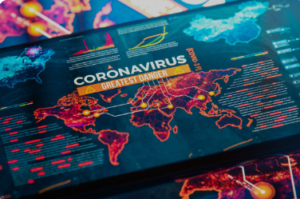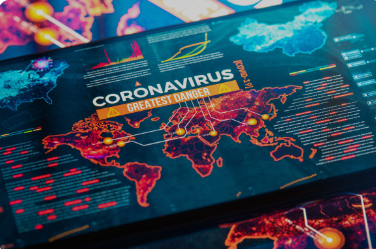The global economy in 2021 has been a rollercoaster ride, filled with unprecedented twists and turns. As nations grappled with the aftershocks of the pandemic, businesses adapted to new realities, and consumers altered their spending habits. This year is unlike any other as we navigate through recovery efforts while keeping an eye on emerging trends that could shape our financial landscape.
In this guide, we’ll dive into what’s driving the global economy right now. We will explore vital factors affecting growth, examine key economic trends to watch closely, and highlight some of the world’s top economies making waves in various sectors. Whether you’re a seasoned investor or simply curious about how these changes impact your daily life, understanding today’s economic climate is essential for thriving amidst uncertainty. Buckle up; it’s time to unravel the complexities of the global economy in 2021!
Factors Affecting the Global Economy
The global economy https://finanzasdomesticas.com/economia-global-en-2021 is influenced by a myriad of factors. Political stability plays a crucial role, as conflicts or changes in leadership can shake investor confidence.
Trade policies also significantly impact economic dynamics. Tariffs and trade agreements shape how countries interact with one another, affecting everything from supply chains to consumer prices.
Technological advancements are transforming industries at an unprecedented pace. Automation and digitalization improve efficiency but can disrupt traditional job markets.
Environmental issues cannot be overlooked either. Climate change initiatives and sustainability efforts drive innovation while introducing new challenges for businesses.
Social trends such as demographic shifts influence consumer behavior. As populations age or urbanize, demand for goods and services evolves dramatically, urging economies to adapt swiftly to stay relevant in a changing landscape.
The Impact of COVID-19 on the Global Economy
The COVID-19 pandemic has reshaped the global economy https://finanzasdomesticas.com/economia-global-en-2021 in unprecedented ways. Lockdowns and restrictions led to sharp declines in consumer spending, disrupting supply chains across multiple sectors.
Many industries, particularly travel and hospitality, faced severe setbacks. Businesses shut down or scaled back operations drastically. Unemployment rates soared as millions lost their jobs overnight.
Governments responded with stimulus packages to mitigate economic fallout. These measures provided temporary relief but also raised concerns about long-term debt sustainability.
Digital transformation accelerated during this period. Remote work became the norm for many, pushing companies toward adopting new technologies faster than ever before.
As economies begin to recover, some shifts may be permanent. The pandemic taught valuable lessons about resilience and adaptability that will shape future strategies for businesses worldwide.
Key Economic Trends to Watch in 2021
As we navigate 2021, several key economic trends are shaping the landscape. Digital transformation is at the forefront. Businesses rapidly adopt technology to streamline operations and enhance customer experiences.
Sustainability is another trend gaining momentum. Companies increasingly prioritize eco-friendly practices, responding to consumer demand for greener products and services.
Inflation concerns also loom large this year. With governments injecting stimulus into economies, monitoring price levels becomes crucial for consumers and investors alike.
Remote work remains a significant factor in labor markets. Organizations adapt by offering flexible arrangements, affecting everything from real estate to employee benefits.
Supply chain disruptions continue to ripple through various industries. Global shortages highlight vulnerabilities but also present opportunities for innovation and resilience-building strategies across sectors.
Top Economies Around the World
The global economy is a complex tapestry of various national markets, each contributing to the overall landscape. At the forefront are the United States and China, two giants that dominate trade and investment flows.
Emerging economies like India and Brazil are also making significant strides. Their rapid growth offers exciting opportunities for investors worldwide. Countries in Southeast Asia, such as Vietnam, have become manufacturing hubs due to their favorable labor costs.
In Europe, Germany remains a powerhouse with its strong industrial base. Meanwhile, smaller nations like Singapore showcase how strategic policies can lead to remarkable economic success.
Shifts in these economies often reflect broader trends affecting global commerce. Keeping an eye on them helps identify potential risks and opportunities in an ever-evolving world market.
Tips for Navigating and Thriving in a Changing Global Economy
Adapting to a changing global economy requires flexibility. Stay informed about market trends and shifts in consumer behavior. Regularly engaging with credible financial news sources can help you anticipate changes.
Diversification is key. Whether in investments or skills, spreading your resources can mitigate risks during economic fluctuations. This approach not only safeguards assets but also opens new opportunities.
Networking plays a vital role too. Connecting with professionals across various sectors provides insights that are often unavailable through traditional channels. Leverage social media platforms for this purpose.
Also, embrace technology. Digital tools can streamline operations and enhance productivity, giving you an edge over competitors who may be slower to adapt.
Maintain a proactive mindset. Instead of reacting to economic changes as they come, plan ahead and set goals that align with emerging trends in the global landscape.
Conclusion
As we navigate through 2021, understanding the global economy is essential for everyone. The impacts of COVID-19 continue to shape our economic landscape, prompting shifts in consumer behavior and business practices. Keeping an eye on key trends can provide insights into potential opportunities and challenges.
Countries are adapting to new realities, with some economies bouncing back faster than others. Staying informed about these dynamics will help individuals and businesses make better financial decisions.
Adapting strategies based on current economic conditions can lead not only to survival but also growth in this ever-changing environment. With a proactive mindset, there are plenty of pathways to thrive amid uncertainty. Embracing change while staying grounded in sound financial principles is crucial as we move forward together into a new era of the global economy.

